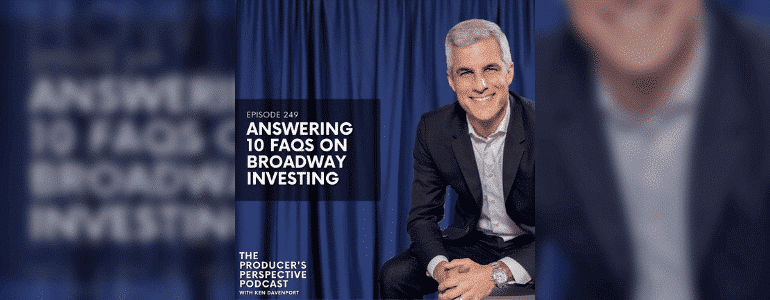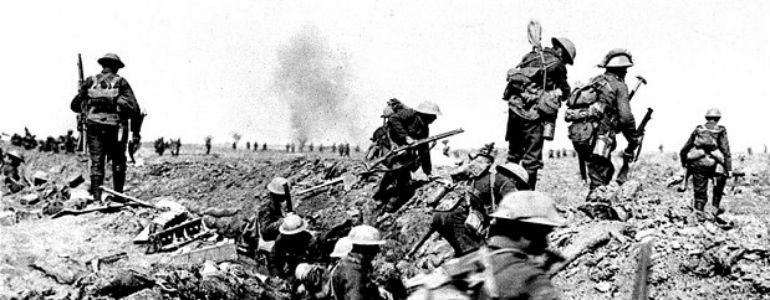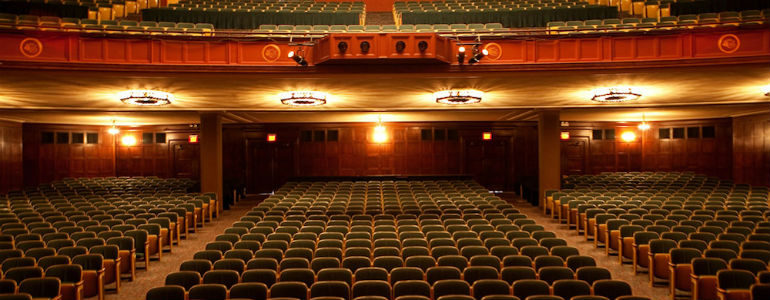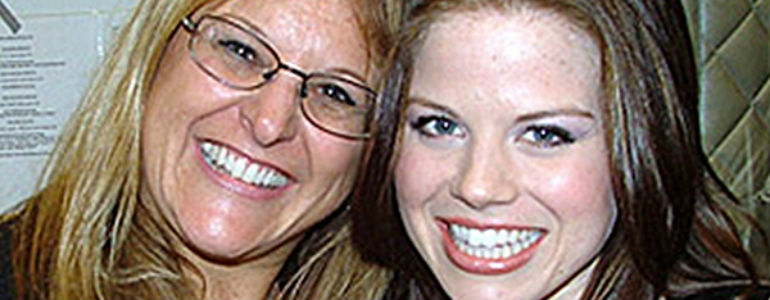10 Questions for a Broadway Pro: A few “notes” from Lin-Manuel Miranda.
To call Lin-Manuel Miranda just a writer is like saying Da Vinci was just a painter.
Like the ancient Italian, Mr. Miranda does a whole lot of things, and, unlike most, he does a whole lot of them unbelievably well. He’s a composer, lyricist, actor, musician, poet, and one of the most beloved guys on the Broadway scene. I wouldn’t be surprised to hear that he invented a flying machine too.
And to say he gives back to the community is an understatement. In fact, here’s a perfect example of how much he cares about the movers and shakers and the writers to be . . . when I ask people to answer my “10 Questions,” the most common answer I get as a reply (when I get a reply) is . . . “How long do my answers have to be?” Sounds like a 12-year-old getting an essay assignment, right?
You know what Lin said?
“My answers are turning out CRAZY long. Is that okay?”
‘Nuff said. Without further ado, here are Tony Award Winner Lin-Manuel Miranda’s awesome answers to our 10 Questions.
1. What is your title?
I write music and lyrics.
2. What show/shows are you currently working on?
I’m working on Bring It On: The Musical (get the Bring It On Recording here) with another composing team, Tom Kitt and Amanda Green, which opens in November at the Ahmanson Theater in Los Angeles.
I’m also working on a concept album about the life of Alexander Hamilton.
3. In one sentence, describe your job.
I write the parts of the show that end up on the cast album.
4. What skills are necessary for a person in your position?
Musicianship. You don’t need to be a piano or guitar virtuoso, but if you’re getting into this because you have music in your head that you are burning to express, you must have a means by which to express it clearly. It’s not enough to be able to hum a tune: You can’t hum a chord. (I mean, some Tibetan monks can, but I can’t.)
Reading and writing music is not necessary, but it certainly helps. Music is like any other language: you can make yourself understood if you’re not fluent, but why not endeavor to make yourself understood as clearly as possible?
You have to ENJOY collaborating, and being part of a team. Musical Theater is many different art forms smashing together: music, storytelling, dance. You may have to change a lyric because your choreographer is planning an amazing routine, and they can’t hold that long legato note you wrote. Your book writer may come up with an amazing scene that renders a particular lyric redundant. If you’ve chosen great collaborators, you talk, you debate, and the best idea in the room wins. Other artists give you perspective and make you a better writer, if you’re running with the right crew. Finding the right crew is the hardest part.
5. What kind of training did you go through to get to your position?
Musically, I took piano lessons at a very young age. I had a solid grounding of music theory in high school, at least enough to be able to fake play something by reading the guitar chords.
But the most formative training I had was a childhood spent with all different kinds of music. My parents and friends had eclectic tastes, and when I began seriously writing music of my own (as opposed to song parodies to amuse my friends), a lot of different influences began to seep out.
I went to Hunter College High School. We had an entirely student-run extracurricular theater program, and an amazing faculty adviser named Gina Dooley. I began acting in 8th grade and never stopped, though I soon began writing one-act plays and musicals, and directing as well. I cannot overstate how much I learned during these years. When you are directing your fellow high school students, and you have no authority to pay, fire or punish them, no motivating force at all other than to make them believe in your vision of how the show should be, you learn to project confidence very quickly.
I majored in theater at Wesleyan University. As a theater major, you need to log a certain number of hours doing BTP, ITP or ATP (Beginner, Intermediate, and Advanced Technical Practice). BTP is applying makeup, painting a set, knitting a costume. ITP is a design position: you can stage manage or create costumes: I did most of mine by doing sound design or writing incidental music for other people’s plays. ATP is acting or directing. So you learn to do a little of everything before you graduate. I learned to sew, I applied makeup, I built and struck sets, I learned to work within a tight budget. I’ll never light a show, but I can tell a Source-4 from a Fresnel. The take away here is enormous: Understand what everyone is bringing to the table, in every discipline. Be around people who want to do what you want to do. You don’t need to go to college for either of those lessons, though I did.
6. What was your first job in theater?
I had a summer job as an unpaid intern at Repertorio Español, an amazing Off-Broadway theater in New York. They have a repertory company that does productions in both English and Spanish. They do several shows simultaneously, so they’re striking sets and putting others up every day. I mostly cleaned floors and struck sets, but I got to see amazing theater for free.
7. Why do you think theater is important?
I can only tell you why it’s important to me: I don’t ever feel more alive than when I’m in a theater full of strangers, and the magic that’s happening on stage makes us all scream, or laugh, or cry together. And those moments are rare because they’re hard to get right, getting all those different elements to coalesce. But when they do? In Phantom, during Masquerade, when it keeps building, and building, and then the Phantom shows up, and the horns BLARE his theme? Or the end of Act One of Sunday In The Park With George, when the painting begins to take shape? I can’t describe the feeling of when everything comes together just right, other than to tell you it’s overwhelming, and powerful, and it has NEVER happened to me staring at my computer at home. It is a uniquely communal experience.
8. What is your profession’s greatest challenge today?
Most immediately: rising costs, rising prices. If we don’t find ways around it, then the only theater that gets produced is custom-built for the people who can afford it. And that club gets smaller every year.
In a macro-sense: funding and supplementing arts education if our schools cannot afford it. I was very lucky to go to a specialized public school where music was a class, right next to science and math and history. No, BEYOND lucky: I won the LOTTERY by getting into that school. It saved my life.
9. If you could change just one thing about the industry with the wave of a magic wand, what would it be?
Comfy seats for everyone. Not just Broadway. My magic wand wave will give every regional, community theater and every school auditorium and gymnasium on Earth comfy seats!
10. What advice would you give to someone who wanted to do what you do?
Learn marketable skills with which you can make a living while you pursue this passion. Listen to anything and everything critically. That doesn’t mean criticize what you like and what you don’t like. It means, if a piece of music moves you, start to break it down. What is the part that gives you chills? Is it the way the horns start playing in unison right at the climax of the song? What is the rhythm section doing: is it playing with those horns, or providing a counterpoint? Let’s say you’re at a show, and you just don’t like what you’re seeing. If you want to do this for a living, DON’T TUNE OUT, and DON’T DON’T DON’T CHECK YOUR PHONE. Look closer: what about this show isn’t working? Did that rhyme pull you out of the story? Is this actor working too hard, and making you see the work instead of the story? Is it the sound system? There is no theater experience from which you cannot learn. In doing this, you begin to learn your own tastes, which will inform the kind of writer you will be. I wish you luck.
(Got a comment? I love ’em, so comment below! Email subscribers, click here, then scroll down, to say what’s on your mind!)
– – – – –
Interested in learning more about how to work with Ken?
Ken has have helped countless others get their shows produced or become producers themselves. Click here to learn more and to see if you’re the right fit.
Podcasting
Ken created one of the first Broadway podcasts, recording over 250 episodes over 7 years. It features interviews with A-listers in the theater about how they “made it”, including 2 Pulitzer Prize Winners, 7 Academy Award Winners and 76 Tony Award winners. Notable guests include Pasek & Paul, Kenny Leon, Lynn Ahrens and more.















